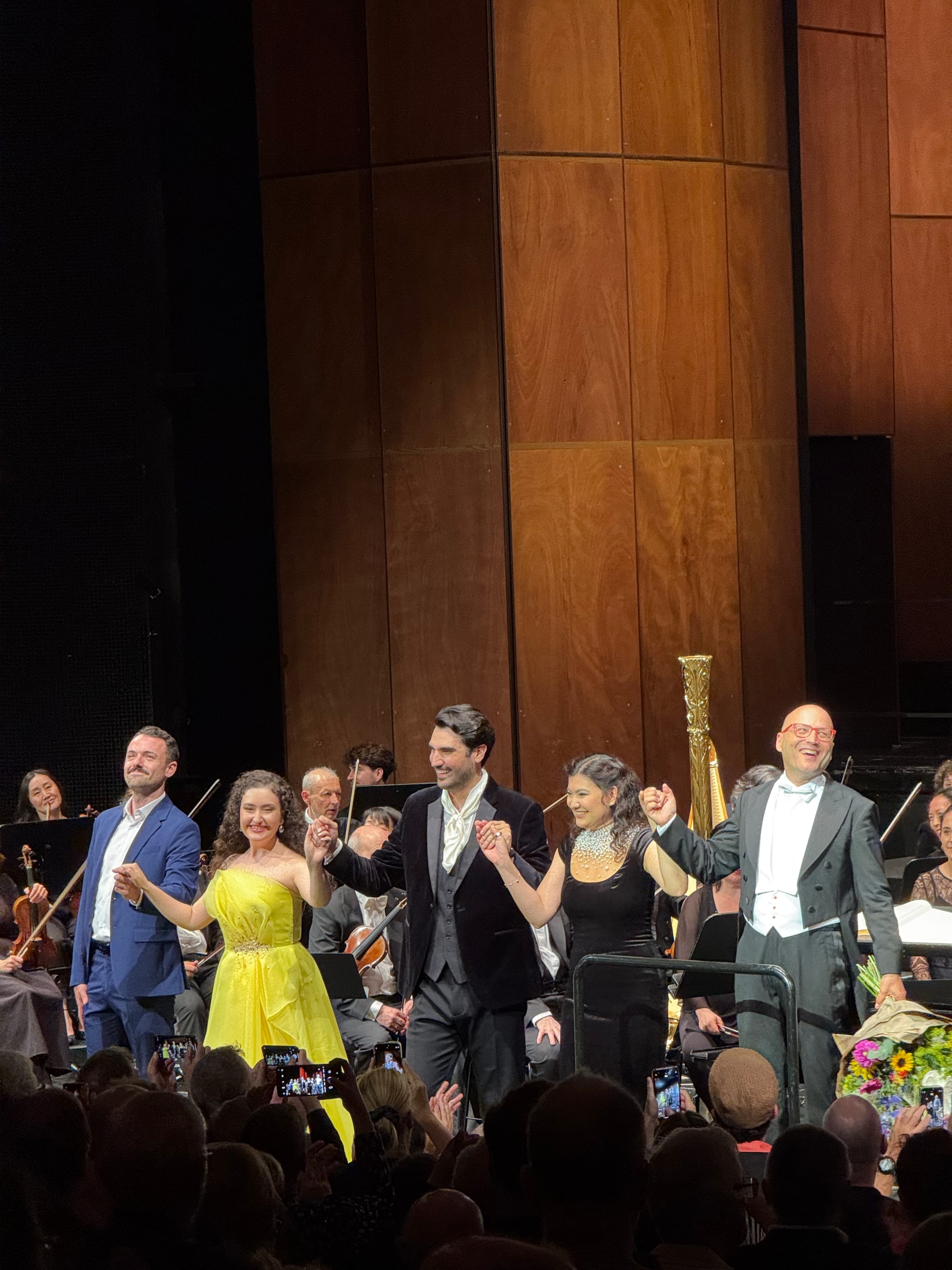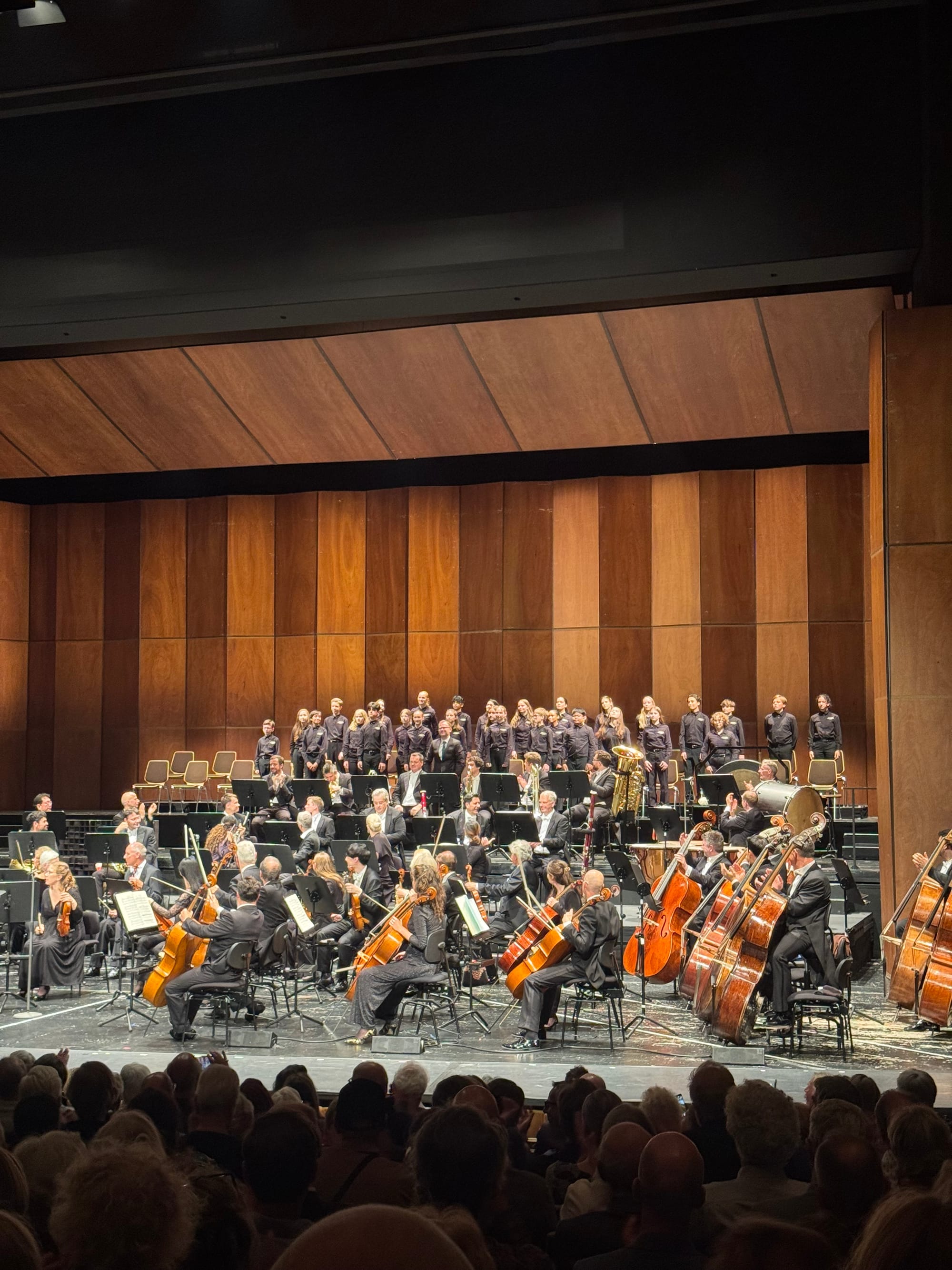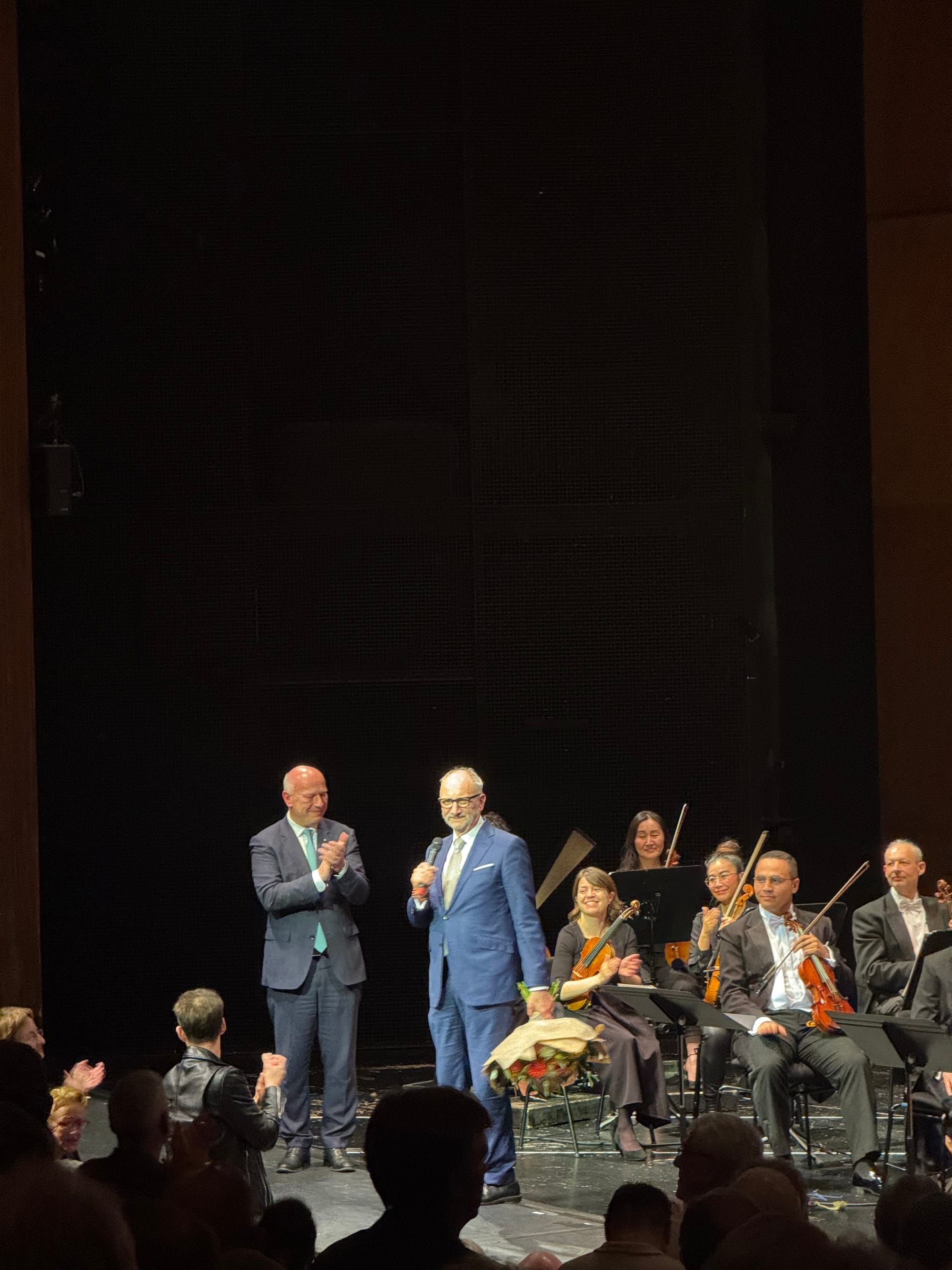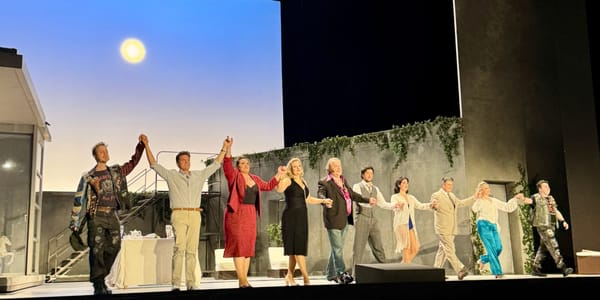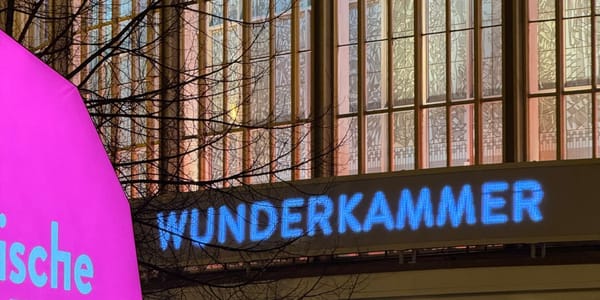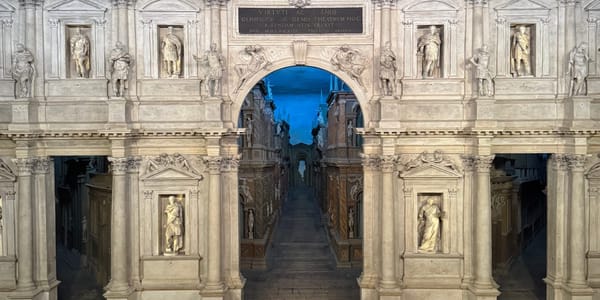Werther (concertante) at Deutsche Oper Berlin
A stirring Werther finale doubled as farewell and protest, as Berlin’s mayor applauded opera amid massive cultural budget cuts.
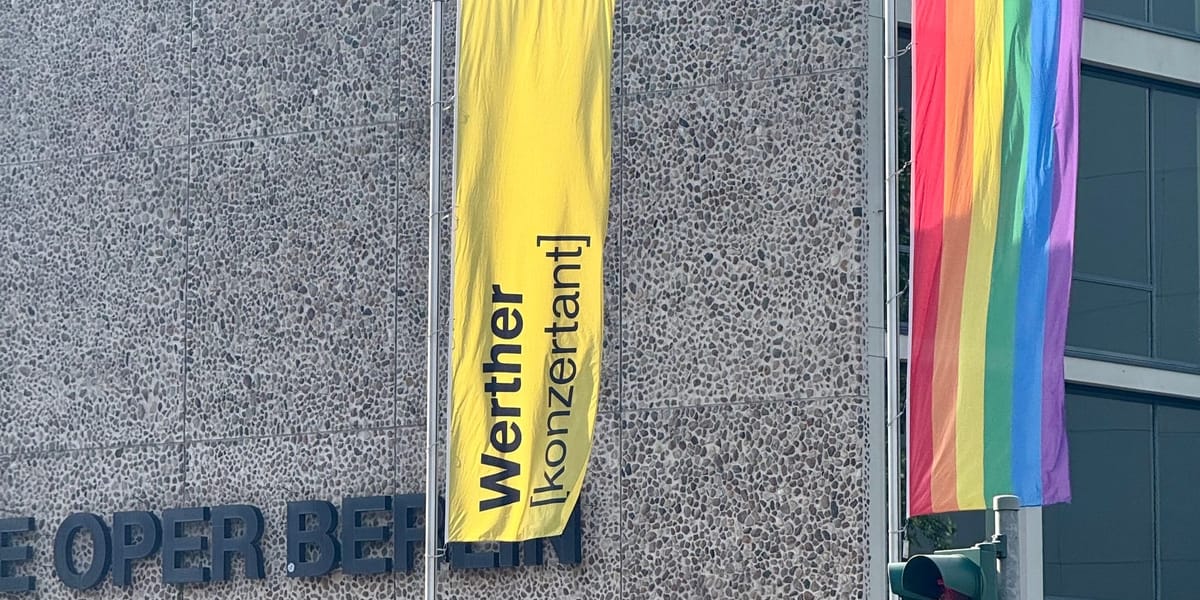
Opera may be on summer break, but this blog isn’t. I’ve got a small backlog of performance I never got around to writing about—not because they weren’t worth it, but because they were. Some performances just sit with you a little longer, and it takes time to figure out what to say. So over the next few weeks, I’ll be circling back to a few standouts from the past season. Call it delayed reporting, or just a slow burn. First up: Werther at Deutsche Oper—farewell, finale, and a little bit of protest.
🎭 Werther
🎶 Jules Massenet, 1892
🏛️ Deutsche Oper Berlin
🗓️ 25.07.2025
“THE TEARS THAT WE DO NOT WEEP FALL BACK INTO OUR SOUL”
The end of a season is always charged, but this one at Deutsche Oper Berlin carried double weight: Massenet’s Werther as a semi-staged concertante performance, and the official farewell of Artistic Director Dietmar Schwarz after 13 years at the helm. The atmosphere in the house matched the occasion—star-studded, buzzy, full of excitement, with cultural heavyweights from across the industry filling the auditorium.
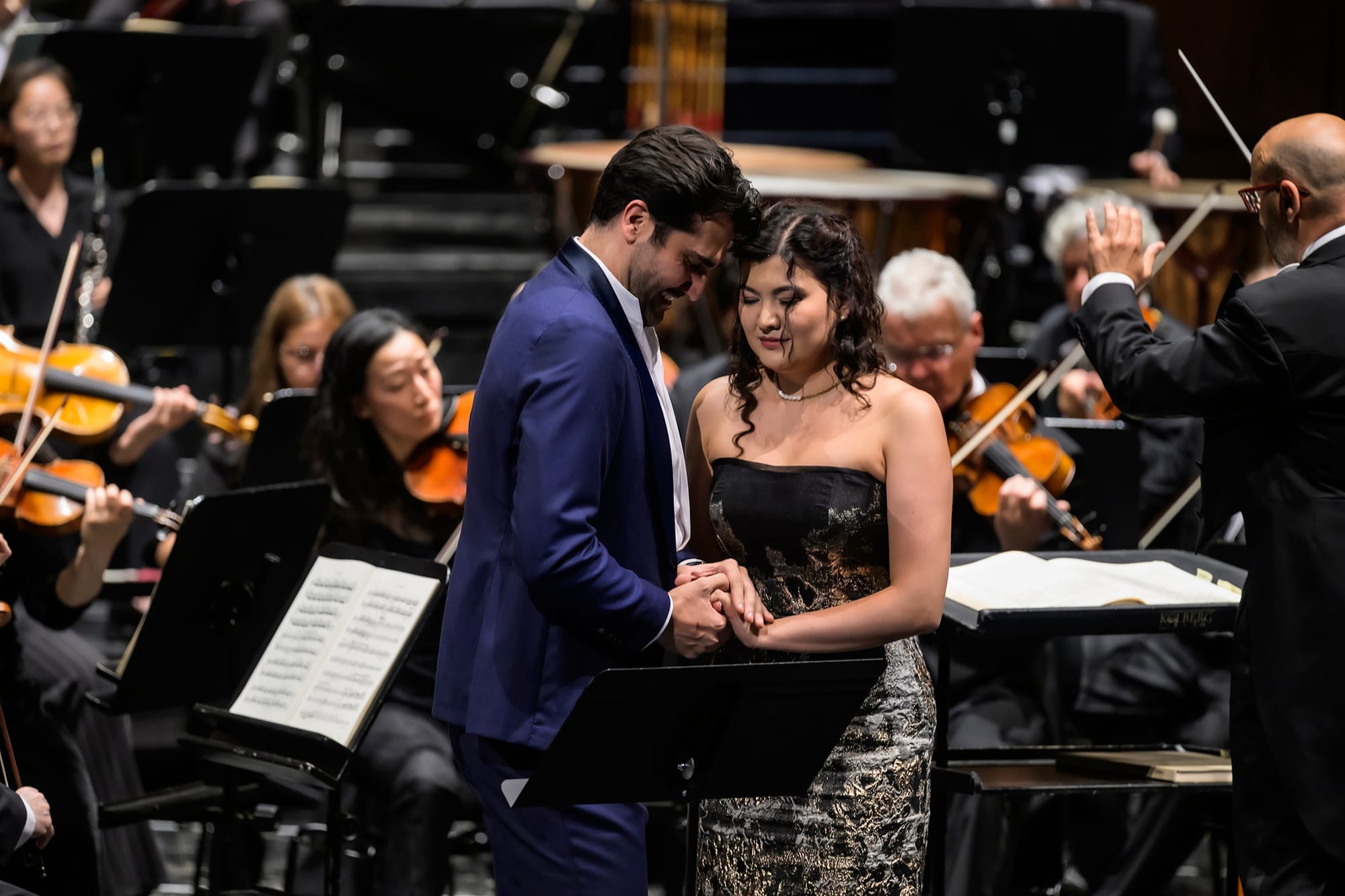
Concertante performances can be beautifully deceptive: stripped of staging, props, and visual distraction, they leave nothing between us and the rawness of the music. It is therefore all the more astonishing how much emotional gravity singers can summon when left entirely to their voices, their breath, their presence. That applied here in full force—orchestra visible, singers bare before us, the story carried on sheer musical energy and interpersonal chemistry.
And what a story. Every German teenager knows Goethe’s Die Leiden des jungen Werther (or at least they’re supposed to). Massenet turns it into an opera of relentless intensity: a case study in anxious attachment before psychology had the words for it. Werther’s passion burns bright, veering toward obsession; Charlotte, bound by a deathbed promise to marry another, vacillates between desire and duty. The chemistry between Jonathan Tetelman and Aigul Akhmetshina was electric—glances and near-touches making clear that love exists, even if society forbids it.
It’s not a plot that travels lightly into the 21st century. By today’s standards, Werther’s declarations might read as love-bombing, even toxic, at best suspicious and problematic. Yet that’s the abstraction opera allows: behind the melodrama lie timeless conflicts—desire versus obligation, personal longing versus societal role. The stakes of choosing between passion and duty may no longer end in suicide, but the emotional truth and turmoil remain relatable.
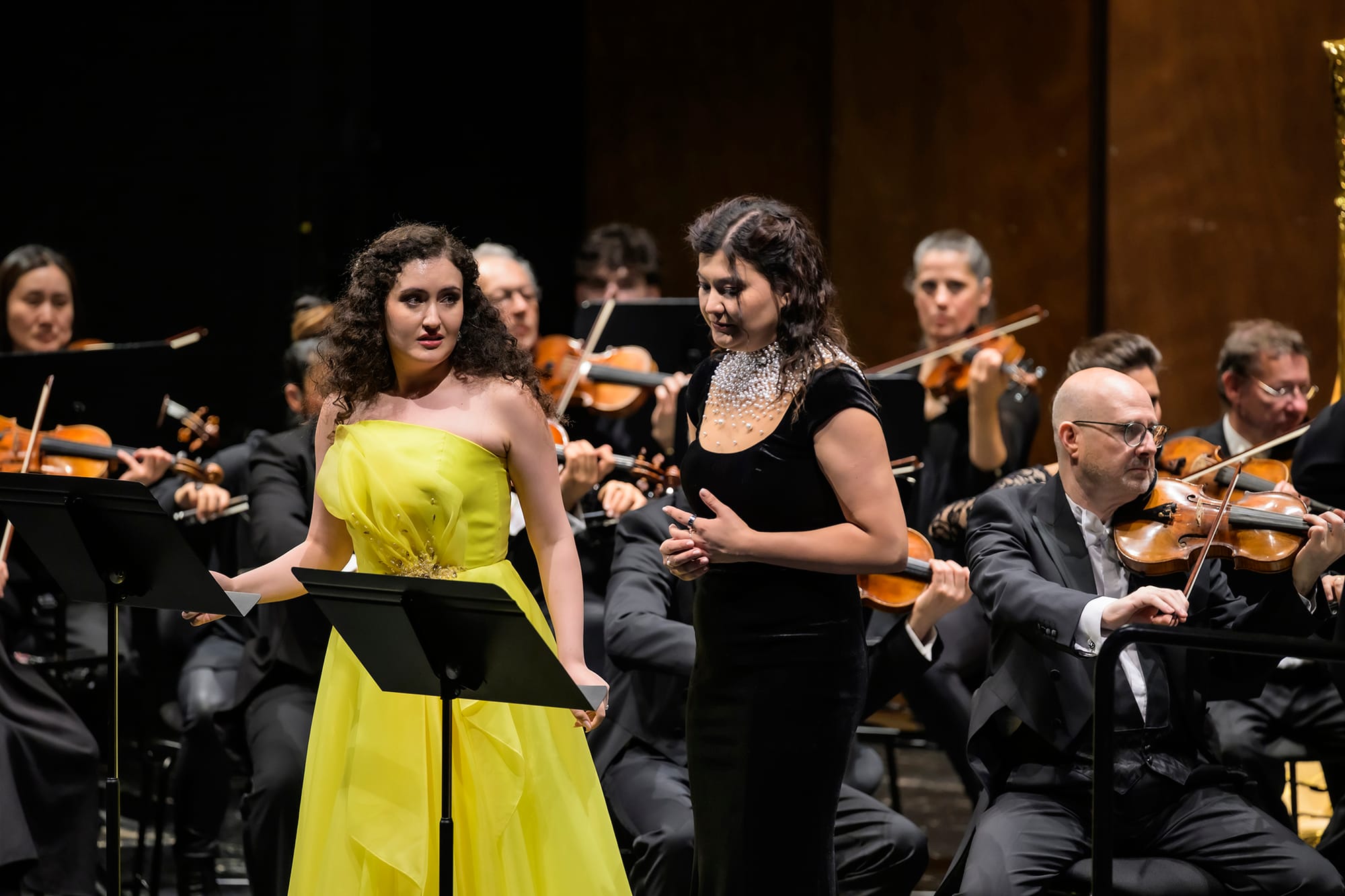
The evening also had its fair share of politics. At the intermission, Berlin’s mayor Kai Wegner appeared onstage to thank Schwarz for his service and praise Berlin as a cultural metropolis. The irony—no, the audacity—was not lost on anyone: this, in the same year the city slashed cultural budgets by hundreds of millions of Euros. “Keine Kürzungen, Herr Wegner!” came a lone but pointed cry from the audience—a sentiment surely shared by many in the room. The dissonance between civic platitudes and political reality could not have been starker. Next time, read the room, Kai!
And yet, despite that, the finale felt fitting: Schwarz departing on an opera that embodies longing, loss, and intensity of feeling. “Die Oper ist Nahrung für die Seele und wir müssen sie füttern,” someone quoted that night. Indeed. At its best, opera doesn’t only entertain, it sustains. And Berlin, if it is to remain itself, must remember to feed its soul.
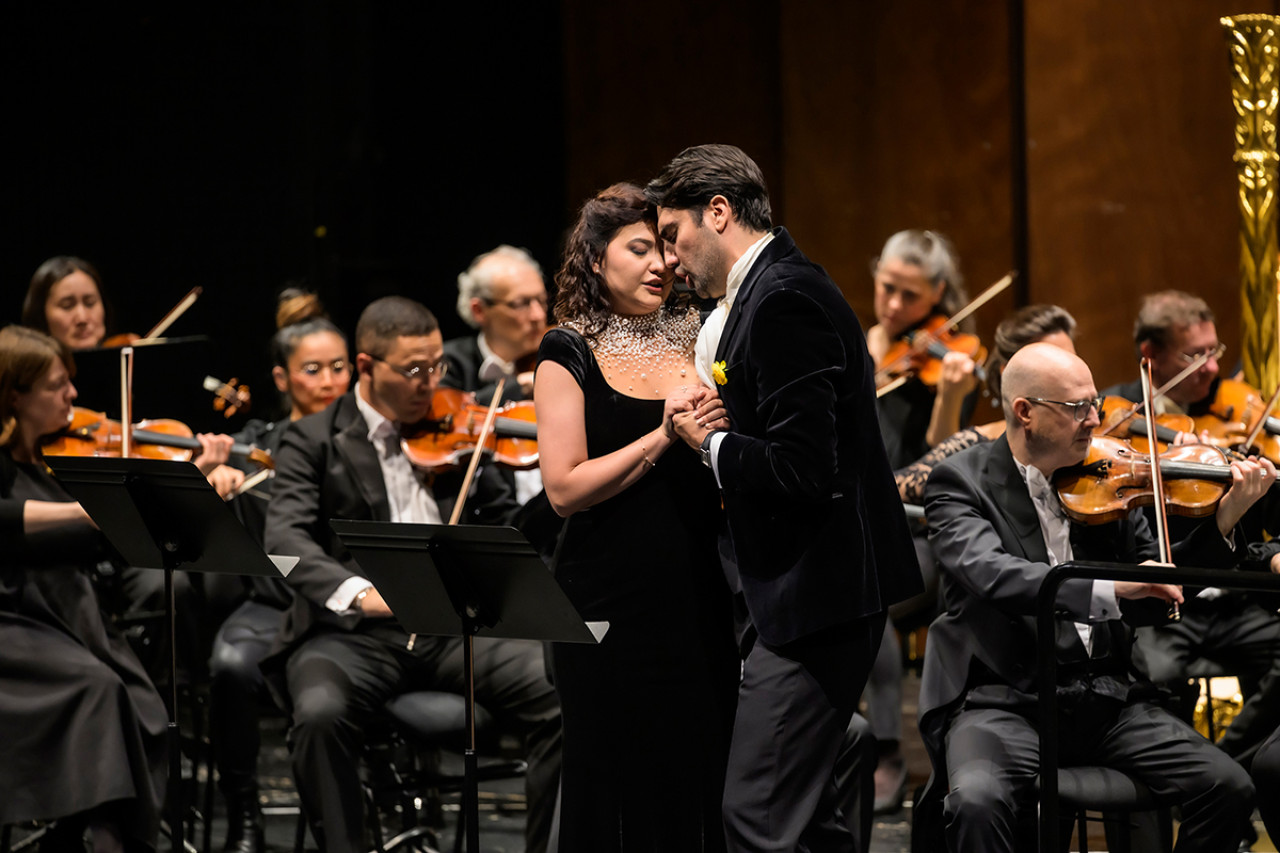
Cast
Conductor Enrique Mazzola
Werther Jonathan Tetelman
Charlotte Aigul Akhmetshina
Albert Dean Murphy
Sophie Lilit Davtyan
Le Bailli Michael Bachtadze
Schmidt Chance Jonas-O'Toole
Johann Gerard Farreras
Brühlmann Jörg Schörner
Käthchen Karis Tucker
Orchestra Orchester der Deutschen Oper Berlin
Chorus Kinderchor der Deutschen Oper Berlin
